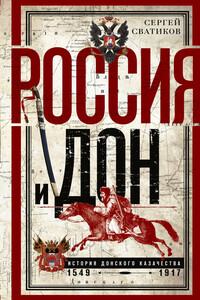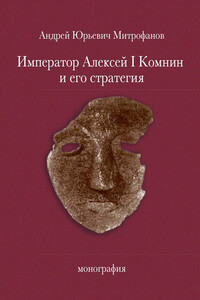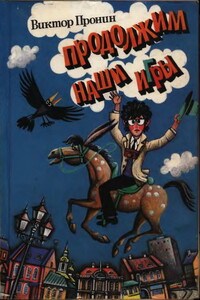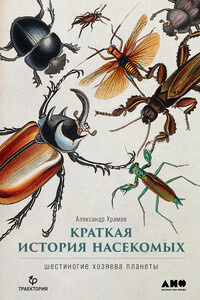Английский язык для специальных и академических целей: Международные отношения и зарубежное регионоведение. Часть 1 - [25]
Unit I. UK: from Empire to Democracy
US:
FROM DEMOCRACY TO EMPIRE?
THE ROAD MAP FOR UNIT II
INTEGRATING CORE SKILLS
PROJECT WORK
Compiling the Reader (for details see p. p. 79-80)
Stage 1
FRF
Finding articles on the issues raised in Unit 2 to be included in the Reader
Stage 2
Fi—P
Writing an abstract of the article chosen to present for peer reviewing
| Stage 3 |
|---|
Writing a review of an article for the class to choose the best three for inclusion in the Reader
SPEAKING
DEBATE: TRADING PLACES
Holding a debate on a politically relevant topic (for details see p. 78)
TERM PRESENTATION
Making a power point presentation based on one's analysis of an issue relevant to the topic “US: From Dempcracy to Empire?” (for details see p. 70)
1. Can you explain the difference between the notions “formal empire” (the Roman model) and “informal empire” (the Athens model)? Which of them is appropriate for the modern world?
2. Is the United States, in your view, an empire? Give your reasoning.
HEIR TO THE BRITISH EMPIRE (Based on Conclusion Chapter from Empire. How Britain Made the Modern World by Niall Ferguson.
Penguin books LTD, London, 2004)
What lessons can the United States today draw from the British experience of empire? The obvious one is that the most successful economy in the world — as Britain was for the most of the eighteenth and nineteenth centuries — can do a very great deal to impose its preferred values on less technologically advanced societies. It is nothing short of astonishing that Great Britain was able to govern so much of the world without running up an especially large defence bill. To be precise, Britain's defence expenditure averaged little more than three per cent of net national product between 1870 and 1913, and it was lower for the rest of the nineteenth century. This was money well spent. In theory open international markets would have been preferable to imperialism; but in practice global free trade was not and is not naturally occurring. The British Empire enforced it.
By comparison, the United States today is vastly wealthier relative to the rest of the world than Britain ever was. In 1913 Britain's share of the world output was eight per cent; the equivalent figure for the US in 1998 was 22 per cent. Nor should anyone pretend, at least in fiscal terms, that the cost of expanding the American Empire, even if it were to mean a great many small wars like the one in Afghanistan, would be prohibitive. [...] Even after big cuts in military expenditure, the United States is still the world's only superpower, with an unrivalled financial and military-technological capability. Its defence budget is fourteen times that of China and twenty-two times that of Russia. Britain never enjoyed such a lead over her imperial rivals.
The hypothesis, in other words, is a step in the direction of political globalization, with the United States shifting from informal to formal empire much as late Victorian Britain once did. That is certainly what we should expect if history does repeat itself. [...] The British Empire began as a network of coastal bases and informal spheres of influence, much like the post-1945 American ‘empire'. But real and perceived threats to their commercial interests constantly tempted the British to progress from informal to formal imperialism. That was how so much of the atlas came to be coloured imperial red.
No one could deny the extent of the American informal empire — the empire of multinational corporations, of Hollywood movies and even of TV evangelists. Is this so very different from the early British Empire of monopoly trading companies and missionaries? Nor is it any coincidence that a map showing the principal US military bases around the world looks remarkably like a map of Royal Navy coaling stations>21> a hundred years ago. Even recent American foreign policy recalls
Unit II. US: from Democracy to Empire?
Unit II. US: from Democracy to Empire?
the gunboat diplomacy>1 of the British Empire in its Victorian heyday>22>>23, when a little trouble on the periphery could be dealt with by a short sharp “surgical strike”. The only difference is that today's gunboats fly.
Yet in three respects the process of “Anglobalization” is fundamentally different today. On close inspection, American strengths may not be the strengths of a natural imperial hegemon. For one thing, the British imperial power relied on the massive export of capital and people. But since 1972 the American industry has been a net importer of capital (five per cent of gross domestic product in 2002) and it remains the favoured destination of immigrants from around the world, not a producer of would-be colonial emigrants. Britain in its heyday was able to draw on a culture of unabashed imperialism which dates back to the Elizabethan period, whereas the US — born not in a war against slavery [...], but in a war against the British Empire — will always be a reluctant ruler of other people. Since Woodrow Wilson's intervention to restore the elected government in Mexico in 1913, the American approach has been to fire some shells, march in, hold elections and then get the hell out — until the next crisis. Haiti is one recent example, Kosovo another. Afghanistan may yet prove to be the next, or perhaps Iraq.

Предлагаем вашему вниманию адаптированную на современный язык уникальную монографию российского историка Сергея Григорьевича Сватикова. Книга посвящена донскому казачеству и является интересным исследованием гражданской и социально-политической истории Дона. В работе было использовано издание 1924 года, выпущенное Донской Исторической комиссией. Сватиков изучил колоссальное количество монографий, общих трудов, статей и различных материалов, которые до него в отношении Дона не были проработаны. История казачества представляет громадный интерес как ценный опыт разрешения самим народом вековых задач построения жизни на началах свободы и равенства.

Монография доктора исторических наук Андрея Юрьевича Митрофанова рассматривает военно-политическую обстановку, сложившуюся вокруг византийской империи накануне захвата власти Алексеем Комнином в 1081 году, и исследует основные военные кампании этого императора, тактику и вооружение его армии. выводы относительно характера военно-политической стратегии Алексея Комнина автор делает, опираясь на известный памятник византийской исторической литературы – «Алексиаду» Анны Комниной, а также «Анналы» Иоанна Зонары, «Стратегикон» Катакалона Кекавмена, латинские и сельджукские исторические сочинения. В работе приводятся новые доказательства монгольского происхождения династии великих Сельджукидов и новые аргументы в пользу радикального изменения тактики варяжской гвардии в эпоху Алексея Комнина, рассматриваются процессы вестернизации византийской армии накануне Первого Крестового похода.

Виктор Пронин пишет о героях, которые решают острые нравственные проблемы. В конфликтных ситуациях им приходится делать выбор между добром и злом, отстаивать свои убеждения или изменять им — тогда человек неизбежно теряет многое.

«Любая история, в том числе история развития жизни на Земле, – это замысловатое переплетение причин и следствий. Убери что-то одно, и все остальное изменится до неузнаваемости» – с этих слов и знаменитого примера с бабочкой из рассказа Рэя Брэдбери палеоэнтомолог Александр Храмов начинает свой удивительный рассказ о шестиногих хозяевах планеты. Мы отмахиваемся от мух и комаров, сражаемся с тараканами, обходим стороной муравейники, что уж говорить о вшах! Только не будь вшей, человек остался бы волосатым, как шимпанзе.

Настоящая монография посвящена изучению системы исторического образования и исторической науки в рамках сибирского научно-образовательного комплекса второй половины 1920-х – первой половины 1950-х гг. Период сталинизма в истории нашей страны характеризуется определенной дихотомией. С одной стороны, это время диктатуры коммунистической партии во всех сферах жизни советского общества, политических репрессий и идеологических кампаний. С другой стороны, именно в эти годы были заложены базовые институциональные основы развития исторического образования, исторической науки, принципов взаимоотношения исторического сообщества с государством, которые определили это развитие на десятилетия вперед, в том числе сохранившись во многих чертах и до сегодняшнего времени.

Эксперты пророчат, что следующие 50 лет будут определяться взаимоотношениями людей и технологий. Грядущие изобретения, несомненно, изменят нашу жизнь, вопрос состоит в том, до какой степени? Чего мы ждем от новых технологий и что хотим получить с их помощью? Как они изменят сферу медиа, экономику, здравоохранение, образование и нашу повседневную жизнь в целом? Ричард Уотсон призывает задуматься о современном обществе и представить, какой мир мы хотим создать в будущем. Он доступно и интересно исследует возможное влияние технологий на все сферы нашей жизни.